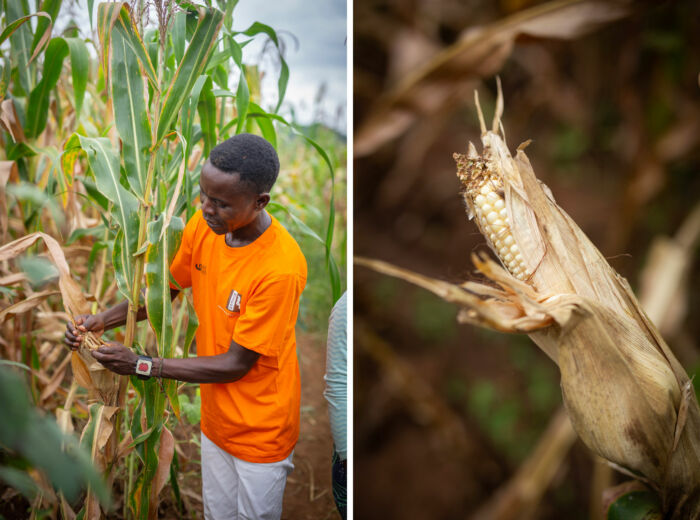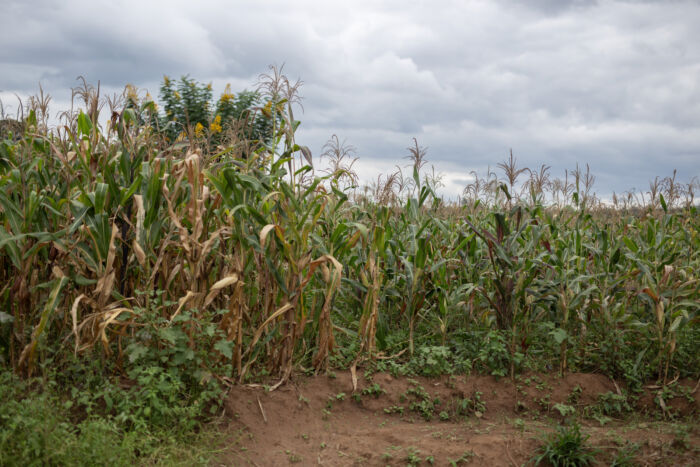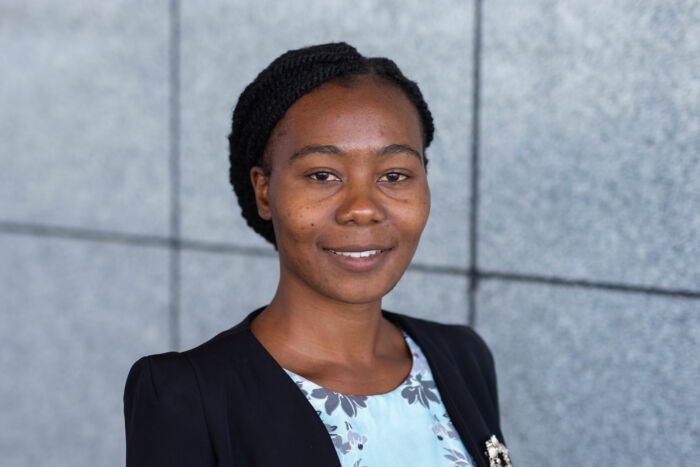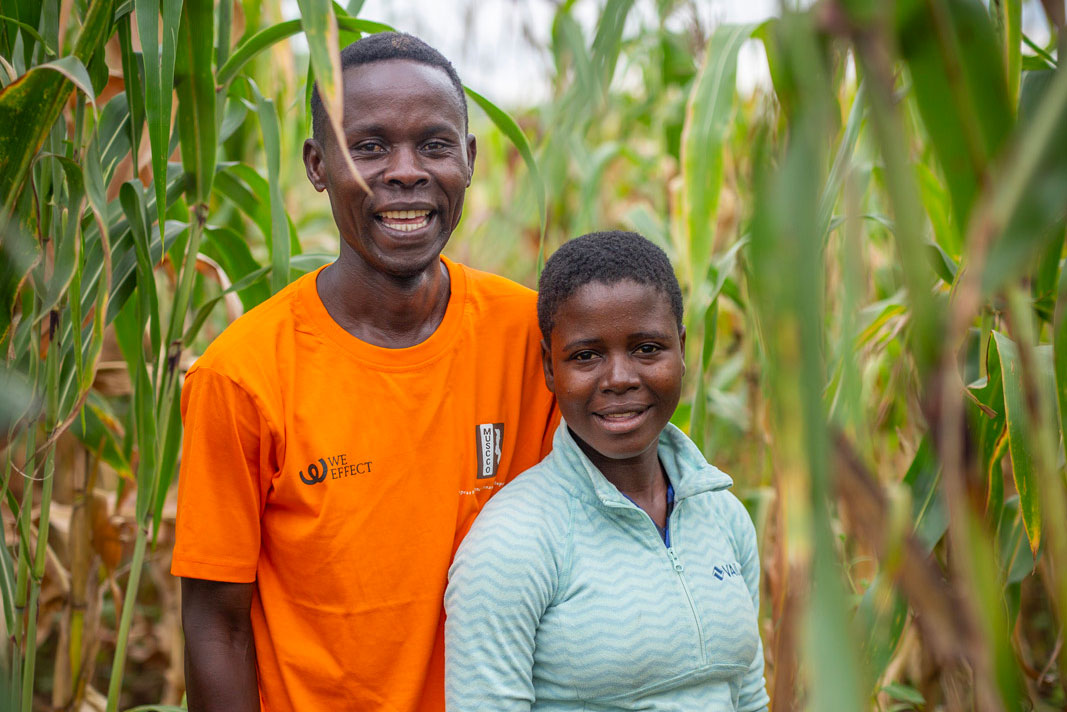On either side of the road, packed with hard clay, maize fields stretch out. The road leads to the small village of Linthipe, nestled at the foot of lush green hills just southeast of Lilongwe. Maize is a staple crop grown on virtually every farm in Malawi. As we reach the fields of Mark Hill and his wife Matazo Jonafani, the maize plants stand tall, at least half a meter higher than those in the adjacent field. Harvest time is approaching.
The young couple, aged 26 and 22, do not yet have children, but when Mark speaks of the future, he thinks about their future offspring.
– I want to be able to support myself and my family when the project we are participating in ends. I want to afford to send my children to school, says Mark.
Malawi has a youthful population; nearly half (46.0%) are under 16 years old, and 73.0% are under 30. Like women, young people face challenges that hinder their development and participation in economic processes. They are often excluded from decision-making and have limited access to and control over productive resources. These challenges are perpetuated by patriarchal norms and preconceptions. For example, women and youth are often seen as passive recipients rather than active participants in political and economic processes. In rural areas, youth and younger households are often poorer than older households, primarily due to limited access to land. The vulnerability and exclusion of women and youth have thus made them priority groups in We Effect’s work for food security.
Mark shares that the biggest challenge he faced as a young person was securing a stable income.
– Previously, I mostly had odd jobs, and it was never enough money to start my own small business, Mark explains.

Mark Hill’s maize is soon ready for harvesting. The plants are strong and healthy thanks to the fertilizer he has learned to produce himself. Photo: Johanna Wolff.
Cooperative membership and education became a turning point
Mark and Matazo are members of a local cooperative and participate in a project supported by We Effect. The local partner organization, Malawi Union of Savings and Credit Co-operatives (MUSCCO), specializes in financial services and cooperative development, implementing the project. Working together with local partners is crucial for long-term sustainability and local anchoring. We Effect also supports MUSCCO in strengthening its capacity as a civil society actor. In the project, methods such as study circles and savings and loan groups are used to increase farmers’ knowledge and access to essential financial services. In addition to providing farmers with vital knowledge, study circles serve as a forum for rural women and youth to learn about their rights and responsibilities. Members also have the opportunity to discuss and address the root causes of inequality, nutrition issues, climate change, discrimination, and poverty, often stemming from lack of knowledge.
The secret behind Mark’s and Matazo’s successful maize growth, despite an unusually dry season, is homemade fertilizer. The young couple learned to mix and produce fertilizer themselves through study circles. The fertilizer is made from materials like chicken manure, chopped plant parts, and water. It performs as well as synthetic fertilizers but costs significantly less and does not deplete the soil in the long term; instead, it replenishes essential nutrients and helps maintain soil health. The results are evident, especially at the juncture between fields. Mark and Matazo’s plants are stronger and taller.

– Now we reuse materials from our crops to make fertilizer. This has reduced our production costs and increased our profits, Mark shares.
Previously, Mark and Matazo did not have enough food to last the entire year. Now they produce enough maize to sell and make a profit. This has enabled the couple to enjoy a more nutritious and balanced diet. A dream for the future is to start their own small shop where they can sell their products.
Impact and targeted investments are the way forward
The situation for Malawi’s young population, the country’s future, is challenging, but concerted efforts are attempting to drive change. A new land law aimed at promoting access to and ownership of land for women and youth was recently enacted. We Effect also supports partner organizations and cooperatives to come together and organize to influence policy in the right direction. In April, We Effect’s country office in Malawi hosted a meeting where representatives from all partner organizations participated, along with representatives from the Ministry of Agriculture and Trade, to discuss challenges and solutions for the agricultural sector. The youth were represented by farmer Roselyn Kasunda Blackson, who is also the youth director at the Farmers Union of Malawi, one of We Effect’s partner organizations in the country.

– Young people often see agriculture as a last resort. We have seen farmers struggling since we were children, and they are still poor. We need motivation, Roselyn Kasunda Blackson explains.
Young people constitute two-fifths of the owners of small and medium-sized enterprises in Malawi. Most are informal, very small, or in the startup phase, but the statistics show the willingness and great potential to improve youth livelihoods with targeted investments and support.
